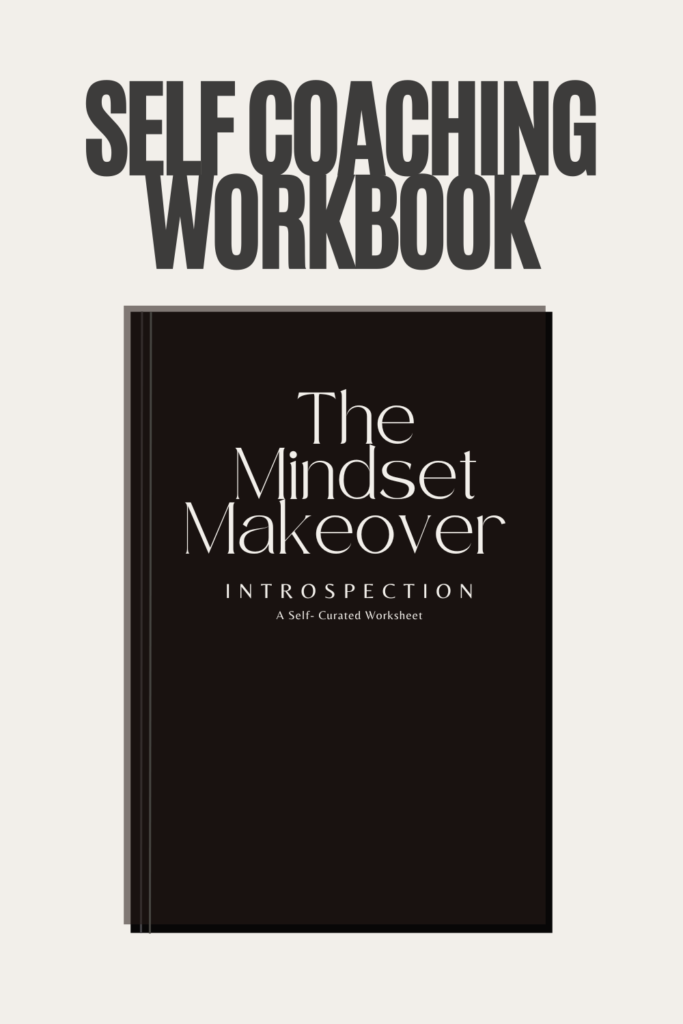Are you tired of carrying the heavy burden of emotional baggage? I understand your struggle—it’s an inevitable part of being human.
The weight of unresolved emotions, traumas, and negative beliefs from past experiences can hold us back from living our best lives.
It’s time to break free from the chains that bind you and soar toward emotional liberation. In this captivating article, we’ll dive deep into the secrets of shedding that emotional baggage once and for all.
Table of Contents
What Does Letting Go of Emotional Baggage Mean?
Letting go of emotional baggage refers to the process of consciously releasing negative emotions, painful memories, and limiting beliefs that weigh us down.
It involves acknowledging our past experiences, accepting our emotions, and actively working toward emotional healing and personal growth. Read more: THE POWER OF PERSONAL SUCCESS: REDEFINING YOUR GOALS FOR A FULFILLING LIFE
The Impact of Emotional Baggage on Our Lives
Emotional baggage can have a profound impact on various aspects of our lives.
It can hinder our ability to form healthy relationships, impede personal growth, and limit our overall happiness and fulfillment.
Unresolved emotional wounds can manifest as anxiety, depression, low self-esteem, and physical ailments. This is why It is crucial to address and release emotional baggage to lead a more authentic and fulfilling life.
9 Strategies and Techniques For Letting Go of Emotional Baggage
1. Self-Reflection and Awareness
To begin the journey of letting go of emotional baggage, it is essential to cultivate self-reflection and awareness.
Take time to explore your emotions, triggers, and patterns of behavior. Journaling, meditation, and therapy can be valuable tools in gaining insights into your emotional landscape and identifying the roots of your emotional baggage.
2. Forgiveness and Compassion
One of the most powerful ways to release emotional baggage is through forgiveness and self-compassion.
Start by forgiving yourself for any perceived mistakes or shortcomings. Understand that you did the best you could with the knowledge and resources you had at the time.
Extend forgiveness to others who may have contributed to your emotional wounds. Forgiveness does not condone past actions; rather, it liberates you from the burden of carrying resentment and anger.
3. Emotional Release Techniques
Various techniques can aid in the release of pent-up emotions and facilitate emotional healing. These include:
- Journaling: Write down your thoughts and emotions without judgment. Allow yourself to express your feelings fully and release them onto the pages of your journal.
- Breathwork: Engage in deep, conscious breathing exercises to release tension and stagnant energy from your body. Focus on exhaling negative emotions and inhaling positivity and calm.
- Creative Expression: Engage in creative activities such as painting, dancing, or playing a musical instrument.
These outlets provide a safe space for emotional expression and can be cathartic in releasing emotional baggage.
4. Cultivating Positive Relationships and Support Systems
Surrounding yourself with supportive and understanding individuals is crucial in the process of letting go of emotional baggage.
Seek friendships and relationships that nurture your emotional well-being and provide a safe space for vulnerability and growth.
Engage in open and honest communication with your loved ones, expressing your needs and boundaries.
5. Mindfulness and Present Moment Awareness
Practicing mindfulness and present-moment awareness can help you break free from the grip of past pain and future worries
Focus on the present moment, grounding yourself in the here and now.
Mindfulness techniques, such as meditation and body scanning, can assist in detaching from negative thoughts and emotions associated with your emotional baggage. Read more: 12 WAYS MINDFULNESS CAN SHIFT YOU FROM DOING TO BEING
6. Seeking Professional Support
Sometimes, letting go of emotional baggage requires the guidance and support of a trained professional.
Consider seeking therapy or counseling to work through deep-rooted emotions and traumas.
A therapist can provide valuable insights, tools, and techniques tailored to your specific needs, empowering you to release emotional baggage and experience profound healing.
7. Cultivating Self-Care Practices
Prioritizing self-care is essential when it comes to letting go of emotional baggage.
Engage in activities that nourish your mind, body, and soul. This may include practicing yoga, taking nature walks, indulging in soothing baths, or engaging in hobbies that bring you joy and relaxation.
By nurturing yourself, you create a solid foundation for emotional healing and growth. Read more: EMBRACING SELF-CARE: A JOURNEY TO BETTER HEALTH AND HAPPINESS
8. Letting Go of Perfectionism
Perfectionism can contribute to the accumulation of emotional baggage. Learn to embrace imperfections and let go of the need to control every aspect of your life.
Allow yourself to make mistakes and learn from them. Embracing imperfections opens up space for self-compassion and growth, freeing you from the weight of unrealistic expectations.
9. Setting Boundaries
Establishing healthy boundaries is crucial in letting go of emotional baggage and protecting your well-being.
Learn to say no to people, situations, and activities that drain your energy or trigger negative emotions. By setting clear boundaries, you create a safe space where you can heal and thrive.
As you embark on the journey of letting go of emotional baggage, remember that it is a process that takes time and self-compassion. Be patient with yourself, celebrate each small step forward, and keep embracing the path of healing and transformation.
Frequently Asked Questions
FAQ 1: How long does it take to release emotional baggage?
Letting go of emotional baggage is a deeply personal process, and the time it takes can vary from individual to individual.
Some people may experience significant progress in a relatively short time, while others may require more extended periods of healing and self-reflection.
Remember, healing is not linear, and it is essential to be patient and gentle with yourself throughout the journey.
FAQ 2: Will letting go of emotional baggage erase my past experiences?
Letting go of emotional baggage does not erase your past experiences. Instead, it allows you to heal and make peace with those experiences.
By releasing the emotional weight associated with past events, you can free yourself from their negative impact on your present and future.
You retain the wisdom and lessons learned from your past, while no longer allowing them to define or limit you.
FAQ 4: What are the signs that I am making progress in letting go of emotional baggage?
Signs of progress in letting go of emotional baggage include increased self-awareness, reduced emotional reactivity, improved self-esteem, and a greater sense of inner peace.
You may notice a shift in your perspective, as old triggers lose their power over you. Celebrate even the small victories and acknowledge the progress you are making on your journey.
FAQ 5: Can letting go of emotional baggage be a lifelong process?
Letting go of emotional baggage is not a one-time event but rather an ongoing journey.
As you grow and evolve, new layers of emotions and beliefs may surface, requiring further healing and release.
Embrace the process as an opportunity for continuous personal growth and self-discovery. Remember, each step you take towards emotional freedom is a step towards a more authentic and fulfilling life.
FAQ 6: What are some additional resources for support in letting go of emotional baggage?
- Therapy and counseling services: Professional therapists can provide specialized guidance and support tailored to your unique needs. Seek recommendations from trusted sources or utilize online directories to find therapists in your area.
- Support groups: Joining support groups or online communities focused on emotional healing can provide a sense of belonging and understanding. Sharing experiences with others who are on a similar journey can be immensely empowering.
- Self-help books and resources: There are numerous books, articles, podcasts, and online resources available on the topic of letting go of emotional baggage. Explore different sources and find those that resonate with you and offer practical tools and insights.
Conclusion
Letting go of emotional baggage is a courageous and transformative journey toward emotional freedom.
By cultivating self-reflection, practicing forgiveness, and embracing various healing techniques, you can release the weight of past pain and live a more authentic and fulfilling life.
Remember, the process takes time, patience, and self-compassion. Embrace the journey and step by step, you will find yourself lighter, freer, and empowered to embrace the fullness of your being.






















73 comments on “9 Powerful Ways to Release Your Emotional Baggage”
Cyndi
This is such a wonderful read. Unresolved hurt really can damage a person
Lani
Hi Cyndi,
I’m glad you enjoyed this post. Its true underlying issues can really damage a person. So, we need to constantly check and make conscious decisions to accept and let go of the past.
Andrea Santogrosso
I really like how you listed the obvious signs of baggage. We get so use to carrying this baggage around that the signs that you mentioned above seem normal. Very insightful information. Thank you!
Lani
Hi Andrea,
I totally agree with you. We get so used to carrying this baggage around that it does seem normal. We don’t recognize how big of a price we have to pay for these deep-seated feelings. I’m glad you got something out of this. If you enjoyed this, do check out my other inspiring posts. Looking forward to hearing more from you.
Kiesha Cambridge
I literally woke up this morning thinking I need to declutter so I can get more focused on my business and traveling. I love the analogy of “There’s a luggage limit for every passenger on a flight. The same rule applies to our lives. The lighter our luggage the easier the journey. Put closure on certain issues and do not allow them to become excess baggage- Excess baggage is expensive- it’s time to unload.” My focus constantly goes to those in need even if I’m extremely busy
Lani
Hi Kiesha,
I’m glad you got something beneficial from the post. I do have excess baggage myself and for years I paid a huge price for it, so I had to unload. Still unloading. Start your journey update me on the progress, I would love to learn from you too!
Aditi Jain
Sucha beautiful post. Regret can eat you alive.
Allison
Great advice! Thank you!
Lani
Hi Allison,
Thank you so much for reading this article. I’m glad you got something out of it. If you enjoyed this post, do check out my other inspiring posts. Looking forward to hearing more from you.
Rose
Wow, this have me a lot to think about
Lani
Hi Rose,
Thanks for reading this article. Yes, there’s really a lot we need to think about when it comes to our life baggage. We need to unload to make our journey easier. If you enjoyed this post, do check out my other inspiring posts. Looking forward to hearing more from you.
Tyanne
It is very true! The more you let go of the lighter you feel.
Lani
Hy Tyanne,
Thanks for reading this article. It’s true, the sooner we unload all the excess baggage the lighter our journey in life will be. If you enjoyed this post, do check out my other inspiring posts. Looking forward to hearing more from you.
Jenny
I love this article
Lani
Hi Jenny,
Thanks so much for reading this article. Do check out my other inspiring posts. Looking forward to hearing more from you.
leena
Great advice and beautifully written!
Lani
Hi Leena,
I’m glad you enjoyed this article. Thanks for your wonderful comments. I do hope you learned something new from it and hopefully apply it in your life. Try to check out my other inspiring posts. I’m Looking forward to hearing more from you.
Diana
Very interesting post, never thought of decluttering your life baggage, but it makes total sense, and I’m sure it will save current and future relationships!
Lani
Hi Diana,
Love your comment. Yes, decluttering life baggage can surely make life easier. If you would like to share your own personal lessons and stories, I would love to hear them. I’m Looking forward to hearing more from you soon.
Kaybee Lives
This is a wonderful post! Thank you for sharing! There are so many things from my past that could drag me down if I hadn’t dealt with them in therapy in the past.
Lani
Hi Kaybee,
Thanks for your comment. Indeed we all carry some sort of baggage in our lives. Awareness, Understanding, and Letting go are very important keys moving forward.
Zoe Garden
I love these. It is so difficult learning how to work through your demons but it is nice to know that we are not alone in dealing with this.
Lani
Hi Zoe,
You are definitely not alone. I hope this post helped.
Jenna
I love the way this is written! Thank you for pointing out types of emotional baggage and also how to overcome the anxiety and depression that comes with it. So helpful.
Lani
Hi Jenna,
Thank you for your comment. I’m glad that you enjoyed this post.
Cosmina Manea
So beautiful and inspiring post! Thank you for sharing! Negative self-blame and unexpressed feelings are something I also faced and it took a long time to escape the vicious unhealthy cycle they create.
Lani
Hi Cosmina,
Thank you for your comment. I’m glad that you enjoyed this post.
Lindsey
This is so insightful and brings such freedom to your readers. Emotional baggage is a danger to your peace and well being and yet it can be a challenge to let go of this. Your advice is very helpful. Thank you!
Lani
Hi Lindsay,
I totally agree with you. Emotional baggage can really be challenging but if we want to move forward and become our better selves it’s essential to resolve these issues.
Bryan
Yes, emotional baggage is a real problem. I know someone with this issue and it eats away at her. Yet, she will do nothing to resolve the problem.
Lani
Hi Bryan,
I understand, It’s really difficult to face all the pain, hate, resentment, and anger. I hope you can forward this post to your friend.
lovingthespectrum
Honest and open conversations, acceptance, forgiveness, not an easy thing to do but to move on and become who we crave, we have to do the hard work <3 Love this post.
Lani
Hello,
Thanks for the comment. I’m glad you enjoyed this post.
Fransic verso
These are important and helpful. Seeking support is good and helps a lot. Practicing self-awareness is also good. Thank you for sharing these tips!
Lani
Hi Fransic,
Thanks for your comments. I’m glad you enjoyed this post.
Fransic verso
It is not good when it hurt mental health or relationship. This brings insight and light into the emotional baggage. Thank you for sharing!
Lani
Hi Fransic,
I totally agree with you. We should never carry pain, hate, anger, and resentment moving forward.
nia
Support was really helpful for me in noticing my emotional baggage. Being able to talk about it with a therapist and friend was really key. Thanks for sharing!
Lani
Hi Nia,
Thanks for your giving me a glimpse of your journey. I also noticed my baggage when I found it difficult to move forward. I now see how important it is to get things in perspective.
Carol
I think we all have emotional baggage- unless we’ve worked long and hard on issues. We all have a past and none of us can escape hurt and grief- but of course some of us do better at coping than others. I think you have some great tips here. Maybe you can dive deeper into each one in separate posts. It’s certainly not an easy journey.
Lani
Hi Carol,
I’m glad you enjoyed this post. I will take your advice soon and dive deeper.
Anna
This is great advice! Holding on to these things can be so heavy, and we don’t even notice the weight of all these things we have been holding onto until we put them down
Lani
Hi Anna,
Thank you so much for your comment. I’m happy to hear you got some pointers and tips from this post.
Nalayini
wow, resonated with this a lot. Xx
Lani
Hi Nalayini,
I’m glad this post resonated well with you. I hope you picked up on a few tips.
Morgan
As a therapist, yes yes yes to all of this!
Lani
Hi Morgan,
Thank you so much for your comment. It’s nice to hear that this post is veted by a therapist.
Cosmina Manea
Mindfullness and living in the present was the best solution for me. Although, I needed to cover almost all points before getting rid of my emotional baggage
Lani
Hi Cosmina,
I’m glad this post resonated well with you, I hope the tips listed in this post helped.
Ian
Really well written and it’s great to see mental health being talked about more and more.
Lani
Hi Ian,
Thank you so much for the comment. I’m glad you enjoyed this post. I hope you got some tips along the way.
Erika R
This was very well written. Thank you for taking the time to speak up on emotional baggage. I feel like this is definitely something that should be talked about more often and you’ve certainly paved the way.
Tyler james
These are important and helpful. Seeking support is good and helps a lot. Practicing self-awareness is also good. Thank you for sharing these tips!
Lani
Hi Tyler,
I’m glad you enjoyed this post and got some tips to try out too.
Valery
I love that you touched on forgiveness and compassion. As a perfectionist I tend to be WAY too hard on myself. This is a great reminder to be kind to myself and offer myself forgiveness. Thanks for sharing!
Lani
Hi Valery,
I agree with you, this is also one thing that I am really working on.
Julianne
Such a great post that is SO important. It’s so much easier sometimes to pretend our baggage isn’t there. But until we deal with it it will keep eating away at us over time. I really appreciate your post and these tips. Thank you for sharing!
Lani
Hello Julianne,
I’m glad you enjoyed this post. You are right we do have to deal with our emotional baggage’s in order to move forward in life.
Catherine Kay
What a valuable resource for taking care of our emotional well-being. I can’t totally release my baggage because the problem is ongoing, but I can manage it. Thanks for your post!
Lani
Hi Catherine,
Thank you for your comment! I’m glad you found the resource valuable for taking care of your emotional well-being. Managing emotional baggage is a significant step, even if the underlying problem is ongoing. Remember, it’s about finding ways to cope and minimize its impact. I appreciate your support and thank you for engaging with the post.
Ryan
Important topics, Lani. Thanks for discussing them with us. Your points about taking time for self-care and letting go of perfectionism particularly resonated with me. Thanks for the reminder that I’ve been neglecting my poor journal as well. All the best to you and whoever else may be reading this post!
Lani
Thank you so much for your kind comment! I’m glad the topics resonated with you, especially the importance of self-care and letting go of perfectionism. Remembering to take care of ourselves is essential. I hope you find time to reconnect with your journal and nurture that self-expression. Wishing you all the best, and I appreciate your support and engagement with the post.
A. H.
This is so great, love these ideas. Thanks for sharing!
Lani
Hi A.H,
I’m glad you enjoyed this post and thank you for engaging.
Claudia
Great article! Very informative and well written.
Lani
Hi Claudia,
I’m happy to hear that you enjoyed this post. Please feel free to check out our other articles.
Nicolle Spohn
All of them are so important, forgiveness and compassion are super important I think. Thank you so much for sharing this post and your wise words.
Lani
Hi Nicolle,
Thank you for your thoughtful comment! I completely agree that forgiveness and compassion play crucial roles in releasing emotional baggage. I appreciate your support and thank you for reading and engaging with the post.
Julie Russell
These are great tips for releasing emotional baggage! Love how you’re honest about what can help through this situation. I look forward to reading more articles!
Lani
Hi Julie,
Thank you for your kind words! I’m glad you found the tips helpful for releasing emotional baggage. I appreciate your support and look forward to sharing more articles with you.
Marysa
These are good points to think about. It can be easy to have emotional baggage and project that on to other things.
Lani
Hi Marysa,
Carrying emotional baggage has real consequences. It impacts your decision-making, perceptions, and self-esteem. That’s why it’s crucial to let go of this baggage.
Mr Malik
I,m glad you enjoyed this post ,such a great post is important sometimes baggage appreciate post these tips.
https://www.intellectfolks.com/login-guide-penn-foster/